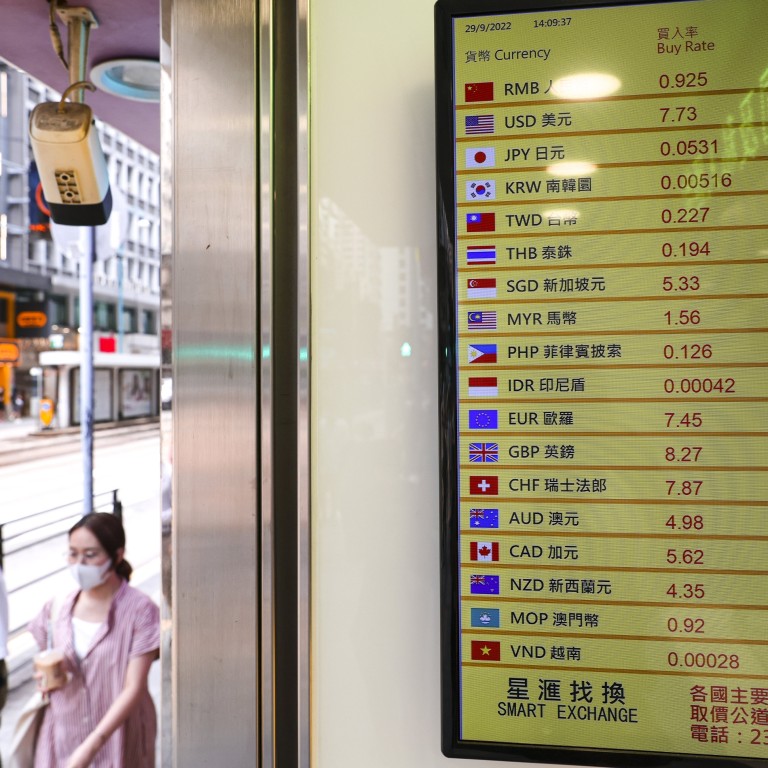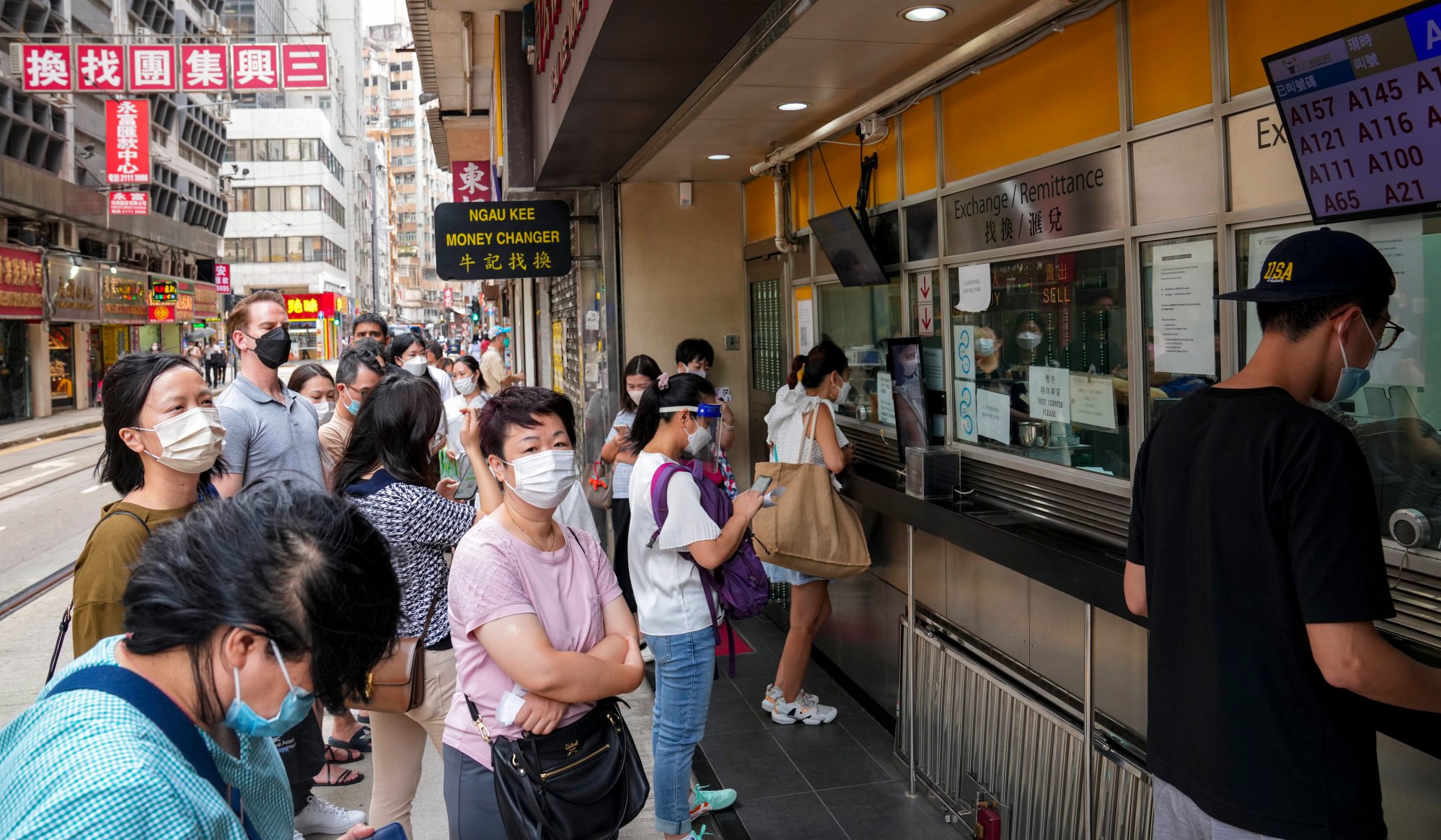
‘I wanted to cry’: currency trends of sterling and yen take Hongkongers on roller coaster ride
- Clement Lai, who earlier bought £30,000, says he burst into tears as he watched the pound sink even lower this week
- The more favourable exchange rate with the Japanese yen has benefited Jeffrey Leung, who bought 20 million yen for his business in Hokkaido last month
A Hong Kong father with plans to move to the United Kingdom admitted he almost burst into tears when the British currency plunged after he bought £30,000.
Clement Lai Hing-ho, 40, said he bought UK money at HK$9.06 (US$1.15) to the pound because he thought it was a good deal, only for the price to weaken further to HK$8.54.
Lai explained he wanted to move to London with his three-year-old daughter when she finished kindergarten in 2025 and was thinking ahead.
“I really wanted to cry when I realised the pound kept falling further,” he said. “From now on I will pay extra attention to the forex market, and try to buy more pounds at a better rate to dilute my loss.”
But the impact of the pound’s crash might be even harder for people who have already moved to Britain under the British National (Overseas) visa programme, which has attracted 140,500 applications since it was introduced in January 2021.
Yin Yau-kan, 32, who moved to Reading in March 2019 said he had struggled in recent months to support his parents, who still lived in Hong Kong, as the pound plunged to a record low against the United States dollar.
British pound falls to lowest level since Margaret Thatcher was prime minister
The assistant to the director of a hospitality company in Reading said he had wired all his money to the UK in 2019 at an average exchange rate of HK$10.71 per pound.
“I have my monthly salary in pounds and spend it here in the UK, so it doesn’t make any difference to living here despite the exchange rate dropping,” he explained.
“However, I used to wire £1,000 to my parents in Hong Kong, which was about HK$10,000, to cover their monthly essential expenses. Now I need to wire more”, said Yin, adding that he had to take on a part-time job at a pub to make extra money.
“I'm planning to buy a house here in Reading which will be mine at the end of the day. But the sink of the currency is like a punch to the gut because the money I brought here has significantly depreciated.”
But, although the pound’s crisis left some Hongkongers facing a financial loss, others have benefited from a more favourable exchange rate with the Japanese yen.
Jeffrey Leung, 40, who owns a skiing school based in Niseko, Hokkaido, seized the chance in late August to buy 20 million yen (US$138,220) through a broker at an average exchange rate of HK$1 to 17 yen because he wanted to expand his business.
The exchange rate was HK$1 to 18.4169 yen on Friday.
“We actually have business needs, that’s why we need to buy yen. The further slide in yen doesn’t really matter to me and my business partners,” Leung said, emphasising they were not speculating for profit.

Terry Yung Shu-wai, 46, paid HK$27,000 for a six-day package trip to the Kansai area of Japan in November with his girlfriend at a city travel agency on Thursday.
He said he had spent HK$30,000 to buy yen for the trip a few days ago.
“The exchange rate is really alluring, even though the package is more expensive than the period before the pandemic hit. It feels like a once in a lifetime moment to witness the cheapest yen ever,” Yung said.
Gabriel Leung Wai-chun, director of the Birdy Exchange Company in Hong Kong, said he had noticed more customers buying yen for travel.
“A lot of reserved and walk-in clients came to us for yen since the government cancelled the hotel quarantine for inbound travellers. They’ve been longing to travel and took advantage of a very low currency rate,” Leung said.
The director said the number of clients was still lower than before the Covid-19 pandemic hit, but people had tended to buy larger sums of yen in recent transactions.
“Last week, there was a man in his 20s walking into the store and spending about HK$55,000 for a million yen,” Leung said.
British pound plunges to record low after Truss government mini-budget
He added he had not seen a surge in the number of people exchanging pounds in recent times.
Carlos Casanova, a senior economist for Asia at Swiss-based private bank Union Bancaire Privée, estimated the yen and pound would continue to slide for the rest of the year.
“Both currencies have depreciated significantly. If you expect they are going to depreciate further, there’s no point buying it in one go now,” he said. “We are seeing Hong Kong investors that are gradually accumulating to benefit from favourable exchange rates.”
Casanova added most people that had bought the yen and British currency were people who wanted to travel or relocate and were not speculators.
“The expectation is the currency will continue to weaken, so they only do it in steps,” he said. “And, depending on whether the currency hits certain low levels, then you can buy more.”

